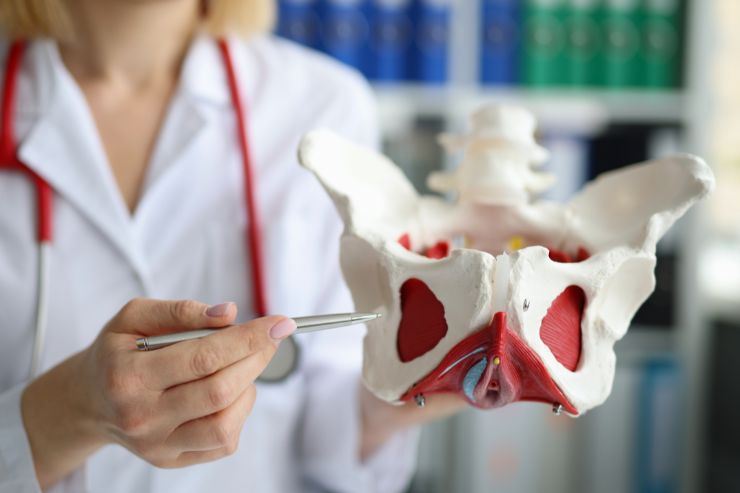Understanding Prolapse
- Comprehensive Evaluation: Thorough assessment to diagnose the type and severity of pelvic organ prolapse (POP), including physical examination and imaging studies.
- Symptom Management: Addressing symptoms such as pelvic pressure, discomfort, urinary incontinence, and bowel dysfunction.
Non-Surgical Treatment Options
- Pelvic Floor Exercises: Education and training in exercises to strengthen pelvic floor muscles.
- Pessaries: Devices inserted into the vagina to support prolapsed organs and alleviate symptoms.
Surgical Interventions
- Anterior Repair (Anterior Colporrhaphy): Procedure to repair a prolapsed bladder (cystocele).
- Posterior Repair (Posterior Colporrhaphy): Surgery to repair a prolapsed rectum (rectocele).
- Hysterectomy: Removal of the uterus, sometimes necessary for treating uterine prolapse.
- Sacrocolpopexy: Surgical procedure to attach the prolapsed organ (typically the uterus or vaginal vault) to the sacrum using mesh or tissue.
- Colpocleisis: Partial or complete closure of the vaginal canal to provide support for prolapsed organs, usually considered for older women not seeking future fertility.
Multidisciplinary Approach
- Collaborative Care: Coordination with urologists, colorectal surgeons, and physical therapists as needed for comprehensive management.
- Patient Education: Counseling on preventive measures, lifestyle modifications, and ongoing pelvic floor health.
Why Choose Narayan Memorial Hospital?
- Expertise: Experienced gynecologists and urogynecologists specializing in pelvic floor disorders and prolapse.
- State-of-the-Art Facilities: Advanced surgical suites equipped for minimally invasive and traditional prolapse repair surgeries.
- Patient-Centered Care: Individualized treatment plans tailored to address specific prolapse symptoms and patient preferences.
- Comprehensive Support: Post-surgery rehabilitation and follow-up care to optimize recovery and long-term pelvic health.
Narayan Memorial Hospital offers advanced prolapse services with a commitment to restoring pelvic health and improving quality of life for women.

